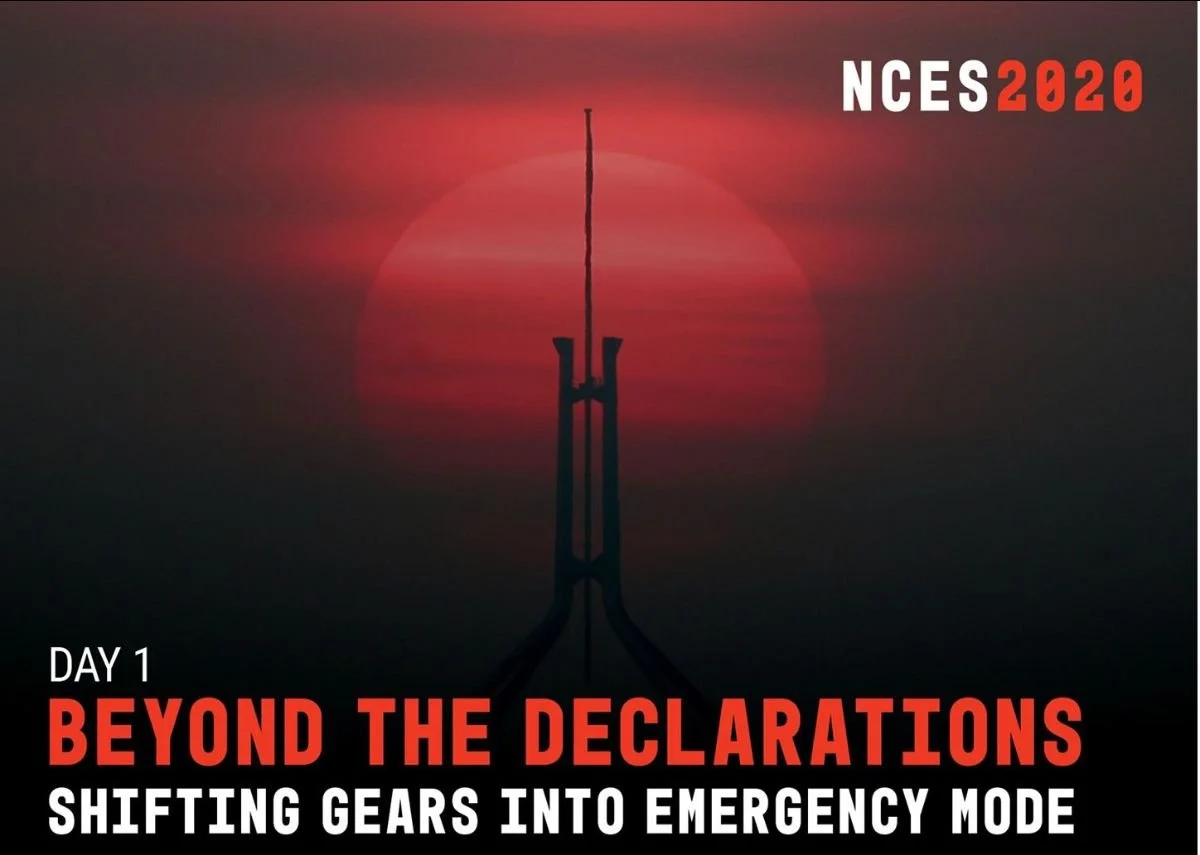SECCCA Autumn Update 2020
SECCCA Declares a Climate Emergency
In 2019 Australia experienced its hottest year on record, paralleled by drought and the Black Summer which began in June and was book ended by extensive flooding.
Climate change is no longer considered a problem for future. Its impacts have refocused the national conversation.
With 7 of SECCCA's 8 members declaring a climate emergency, SECCCA also declared at its February 2020 Meeting. A move backed by the Councillor Advisory Group.
As part of its Climate Emergency Declaration advocacy effort, SECCCA has written to the Victorian Premier and the Minister for Energy Environment and Climate, supporting a commitment to strong interim emissions reduction targets. In addition to ensuring Victoria contributes its 'fair share' to global emission reduction efforts, strong interim emissions reduction targets will send a clear investment signal to the Victorian economy, enabling businesses to prepare for and take advantage of opportunities before the 2050 zero emissions deadline.
The investment and job creation potential inherent in strong interim emissions reduction targets also present exciting economic opportunities in technologies such as renewable energy, industrial and residential energy efficiency, electrification, public transport, emissions abatement and draw down and improved land use. Importantly, strong targets support a more equitable and just transition for those regional communities currently dependent on high emitting industries.
For further information please contact Dominique La Fontaine SECCCA Executive Officer
National Climate Emergency Summit
SECCCA Executive Officer Dominique La Fontaine presented to the National Climate Emergency Summit on 14th February. Beyond the Declarations session discussed how an ‘emergency mode’ can launch governments into action, and what this roll-out could look like at local, state and national levels to restore a safe climate.
Dominique shared SECCCA's Climate Emergency 101 Guide which lists priority actions that a council should enact following a declaration. These include the adoption of an ambitious near term emissions reduction target incorporating council's supply chain; CEO and Executive accountability for the delivery of actions and emission reduction targets; the allocation of adequate funding and staff resources to implement actions; ensuring every council department and every employee understands climate change, how it will impact council and the community and the role each council employee plays in helping implement a Climate Emergency Action Plan. Delivery of protection and adaptation measures are also key activities.
The National Climate Emergency Summit brought together practitioners, advocates, governments, youth leaders, and industry innovators from across Australia to explore and unpack what a climate emergency transition could look like at local, national, and global levels.
SECCCA has added its signature to The Safe Climate Declaration calling on all Australians to join in building leadership that embraces the need for emergency climate action.
As a signatory to the Declaration SECCCA will;
Emphasise the importance of a non-partisan approach that embraces people of all political parties and sectors of society who are committed to science-based policies that make climate a first priority of government and of the community;
Emphasise the value of a non-partisan government of national unity on climate;
Hold current political leaders to account if they fail to protect the Australian people;
Take action to empower Indigenous voices and leadership;
Take action to strengthen democracy and citizen rights;
Give priority to engaging with the business community to build understanding of the real nature of the risks and the pace of change required;
Work to mobilise and connect all sectors of civil society to make a powerful contribution;
Work to reinvigorate public administration and governance skilled and willing to drive the political and economic transition;
Advocate tirelessly in public to build understanding and community capacity to drive change;
Support the formation of a specialist taskforce to set out a road map for Australia’s emergency transition to restore a safe climate.
Reducing Community Emissions
Emissions from community activities are far greater than emissions from council activities. With a climate emergency declaration, councils now play an even more important role helping communities to reduce emissions. But what are the most cost effective strategies that council's can implement to do this?
With the support of the City of Kingston, SECCCA is engaging Ironbark Sustainability to develop a regional, emission reduction community action plan that aims to achieve a zero emissions region. The project will consider pathways to emissions reduction targets that will be effective, efficient and beyond business-as-usual; either by making them happen earlier or to a greater extent.
Whilst Ironbark has worked with a number of other councils throughout Australia to deliver these plans, this is the first time Councils have come together to take a regional approach, increasing the scale of opportunity and leveraging the best outcomes.
Climate Risk and Local Government
Sarah Barker, Head of Climate Risk Governance with Minter Ellison, presented a webinar for Sustainability Victoria on Climate Risk through a Financial and Liability Lens. Sarah has made a number of presentations to SECCCA councils about this critical topic. The webinar is an ideal way to enable a broader council audience to learn more about climate risk governance for councils. The webinar can be viewed at this link.
Sarah's presentation explains the need for councils to understand how to manage the impacts of climate change, including on their assets and infrastructure.
SECCCA's Asset Vulnerability Assessment Project will provide each member council with an understanding of how climate change will impact their assets, focusing initially on roads, buildings and drainage. Council's will understand the likely climate change impact on assets enabling consideration of impacts in design, maintenance and renewal. This will then inform appropriate financial planning such that infrastructure investment can be forecast with more confidence.
SECCCA is also working with the Insurance Council of Australia to help councils access the funding identified through the Asset Vulnerability Project. An upcoming workshop on 28 April will bring together council's finance, asset, risk and sustainability council staff with lenders and private equity firms.




